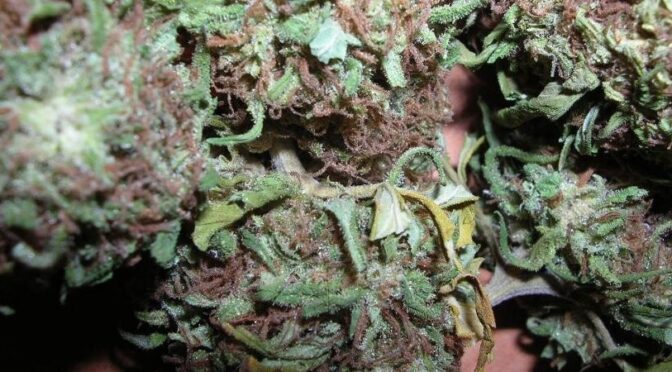Christian Soto, smoked marijuana “laced” with something his friend gave him and went on a killing spree in Rockford, Illinois, on Wednesday afternoon. Soto stabbed his childhood friend Jacob Schupbach, ran over him and killed three others in a violent rampage.
“While detectives say the motive is not clear, they said that Mr. Soto told them he believed that drugs given to him by his friend were ‘laced’ with ‘ ‘an unknown psychotic,’ Mr. Hanley said, adding that Mr. Soto ‘said he became paranoid after the drug usage.’” Soto went to Mr. Schupbach’s house to smoke marijuana.
Marijuana need not be “laced” with anything to trigger an extreme psychotic reaction, a fact we’ve publicized since 2014. (See Myth #2 of 10 Myths Marijuana Advocates want you to believe.)
This case echoes the Bryn Spejcher stabbing case, where the victim provided the marijuana that led to his death. Spejcher also stabbed herself, which Soto did not do. But he also killed Schupbach’s mother and two people unknown to him, a teen girl and a mail carrier. News reports describe Soto and Schupbach as “childhood friends.”
The house where it began, at 2300 Holmes Street, stands about 2 miles from a pot shop, one of three “dispensaries” in Rockford.
Shortly after news broke of this mass murder, Governor Glenn Youngkin of Virginia vetoed a marijuana commercialization bill, noting that today’s high potency pot can cause immediate psychosis.
Other Cases of Cannabis-Induced Psychosis
While the public may be horrified that a person in cannabis-induced psychosis can be acquitted, there’s precedence in other countries. Recently an Irish court suspended the trial of James Kilroy, who strangled his wife while in psychosis from THC. In Dublin, a jury found another man who suffered a cannabis-induced psychosis not guilty of his wife’s murder by reason of insanity.
One motive for keeping cannabis illegal acknowledges that, while somewhat infrequent, use of cannabis can trigger such unspeakable tragedies. Few states with legalized marijuana require mental health warning labels or warning signs of psychosis on the walls in “dispensaries.” Cannabis-induced psychosis can be acute, as in the Rockford stabbings, or chronic, as in the Kilroy case.
Different people react differently
If Soto was able to explain himself, his acute psychosis may have subsided by the time he told prosecutors his story. Was the marijuana purchased at one of Rockford’s three “dispensaries” or did it came from a drug dealer? Such details may be revealed in the trial and after an investigation. Let’s hope the police release toxicology reports on Soto and Schupbach to the public. Different people react to the same drugs differently.
Illinois legalized marijuana in 2020. Many incidents in the state suggest that opening state-regulated pot shops does not guarantee “safer” cannabis.
Some people buy Delta-8 THC at smoke shops which also can cause extreme psychotic reactions. Illinois hasn’t banned these products, as about one-third of states have done.
Shame on the politicians who increased access to marijuana by legalizing it and made our lives less safe in the USA.
Other cases in the news
Sadly, these cases are not isolated events. We note a long and ongoing series of marijuana-fueled violent psychotic breaks. Take a look at a few examples:
- Jake Notman stabbed his girlfriend more than 30 times and ran her over after eating a pot brownie. Like Spejcher, he was cleared of murder because he did not know “what was real and what was not”. At the trial, Justice May said: “There is an obvious lesson…that cannabis can be very dangerous. It is an illegal drug for good reason.”
- Lavrius Watson stabbed to death the mother of the children he was babysitting after eating a weed cookie and suffering an “adverse reaction”. He later pleaded “no contest” to murder.
- Marquis Brown, a Duquesne University student, went to a friend’s apartment, smoked some weed, and then began acting erratically. When campus public safety officers arrived and tried to calm him down, Brown threw a chair through a window and leaped 16 stories to his death.
The individual stories are framed by a larger narrative, as more and more research links the use of marijuana to increases in violence, self-harm, and suicidality. The US ignored the warnings, creating a more violent, drug-fueled society. We could have prevented the Rockford tragedy, if the state hadn’t legalized marijuana. Cannabis, not “laced” cannabis, triggers psychosis.

